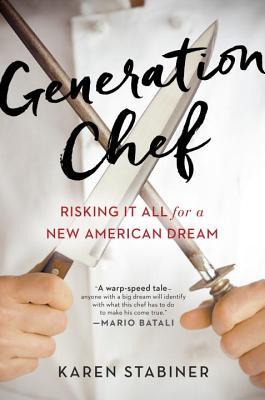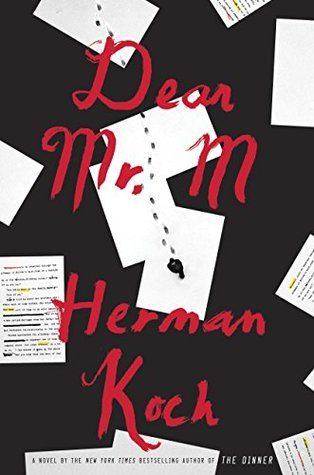Title: Salt Sugar Fat: How the Food Giants Hooked Us
Author: Michael Moss
Publisher: Random House
Publication Date: February 26, 2013
Source: borrowed from the good ol' public library
Summary from Goodreads:
In the spring of 1999 the heads of the world’s largest processed food companies—from Coca-Cola to Nabisco—gathered at Pillsbury headquarters in Minneapolis for a secret meeting. On the agenda: the emerging epidemic of obesity, and what to do about it.
Increasingly, the salt-, sugar-, and fat-laden foods these companies produced were being linked to obesity, and a concerned Kraft executive took the stage to issue a warning: There would be a day of reckoning unless changes were made. This executive then launched into a damning PowerPoint presentation—114 slides in all—making the case that processed food companies could not afford to sit by, idle, as children grew sick and class-action lawyers lurked. To deny the problem, he said, is to court disaster.
When he was done, the most powerful person in the room—the CEO of General Mills—stood up to speak, clearly annoyed. And by the time he sat down, the meeting was over.
Since that day, with the industry in pursuit of its win-at-all-costs strategy, the situation has only grown more dire. Every year, the average American eats thirty-three pounds of cheese (triple what we ate in 1970) and seventy pounds of sugar (about twenty-two teaspoons a day). We ingest 8,500 milligrams of salt a day, double the recommended amount, and almost none of that comes from the shakers on our table. It comes from processed food. It’s no wonder, then, that one in three adults, and one in five kids, is clinically obese. It’s no wonder that twenty-six million Americans have diabetes, the processed food industry in the U.S. accounts for $1 trillion a year in sales, and the total economic cost of this health crisis is approaching $300 billion a year.
In
Salt Sugar Fat,
Pulitzer Prize–winning investigative reporter Michael Moss shows how we got here. Featuring examples from some of the most recognizable (and profitable) companies and brands of the last half century—including Kraft, Coca-Cola, Lunchables, Kellogg, Nestlé, Oreos, Cargill, Capri Sun, and many more—Moss’s explosive, empowering narrative is grounded in meticulous, often eye-opening research.
Moss takes us inside the labs where food scientists use cutting-edge technology to calculate the “bliss point” of sugary beverages or enhance the “mouthfeel” of fat by manipulating its chemical structure. He unearths marketing campaigns designed—in a technique adapted from tobacco companies—to redirect concerns about the health risks of their products: Dial back on one ingredient, pump up the other two, and tout the new line as “fat-free” or “low-salt.” He talks to concerned executives who confess that they could never produce truly healthy alternatives to their products even if serious regulation became a reality. Simply put: The industry itself would
cease to exist
without salt, sugar, and fat. Just as millions of “heavy users”—as the companies refer to their most ardent customers—are addicted to this seductive trio, so too are the companies that peddle them. You will never look at a nutrition label the same way again.
My Review:
The other night at book club, I told one of the other moms (hi, Abby!) that I was planning to review this book soon. She was interested, but expressed disdain at the overwhelming amount of information out there about how bad our food is these days. I had to agree. Every time you turn around, there's another news article or viral Facebook post telling you to cut back on food additives, or sugar, or carbs, or whatever. As much as I want to eat healthier (and feed my family better food), it can all be a bit much.
(And the fact is, Small Fry just isn't going to live life without Goldfish, even if I have no desire to know what gives them that lovely orange hue.)
However--I do love books like this one in moderation (maybe once a year or so?) in order to remind myself of some basic principles to get my eating back in order. For example, I read Michael Pollan's
In Defense of Food in 2009, and spent the rest of that year trying to eat more vegetables and good fats as a result (if you like the Mediterranean diet, you MUST read that book. Yum). Last year, I read Pooja Mottl's
The 3-Day Reset
, and started trying to lower my sugar consumption. Do books like this make me avoid processed foods entirely? No, but I think I benefit from a little kick in the pants once in a while.
Enter
Salt Sugar Fat. I heard great things about this expose of the processed food industry back when it was first released, and given
my resolution to eat better this year, it was high time for some food reading. Despite the subtitle on this book, I wouldn't necessarily say that it's a war cry against the processed food industry. Actually, the increasing consumption of salt, sugar, and fat seems to be based on a vicious cycle between what the public wants and what the food companies can profitably (for them) provide. America wants more convenience foods? The food companies gave it to them, but with lots of unhealthy ingredients to increase shelf life and make them palatable. Now Americans are obese and need healthier food? Some food companies do, in fact, want to provide that--but as soon as salt/sugar/fat levels in the food are lowered, taste is compromised, and the companies can't make money off a bland-tasting product. So back to salt, sugar, and fat we go.
That's not to say that the food companies shouldn't be held largely responsible. They created America's cravings for unhealthy foods, and they are doing little to reverse them. (Not to mention, they are working hard to bring those cravings to other countries.) In fact, they keep doing research to find out how to make us MORE addicted to their stuff. But one of the most interesting things about this book was the interplay between what Americans want, and what the companies feel pressured to provide. Many of Moss's interviewees were former industry employees who had tried to enact healthy change in their companies, but in the end, they were nearly always thwarted by the bottom line--companies are going to offer the things that sell. And what sells is salt, sugar, and fat.
Moss also delves into the science behind our addictions to these three ingredients, which was super fascinating. Between the revelations about the food industry and the biological details of our dependence on salt, sugar and fat, my first trip to the grocery store after reading this book felt like doing battle. "I KNOW WHAT YOU'RE TRYING TO DO THERE WITH THAT PRODUCT PLACEMENT, GROCERY FIENDS! Take your 'all natural' claims and shove 'em!" But really, this is all good information to have if you want to be a more conscious and empowered shopper.
While the level of detail might be a bit overwhelming (towards the end, I was getting a little bored with the financial info about the food companies), this is an extremely well-researched look at processed foods, and a great way to start off your new year if you're looking to become an educated eater.
Confess it, readers: what's your greatest processed food weakness? Mine is Oreos. OREOS ALL DAY. Bonus if they're the holiday White Fudge ones.
 Hey, remember how I love foodie nonfiction? Yeah, you probably forgot, because it's been so long since I reviewed any! But when Generation Chef was offered up to me for review, I absolutely could not resist. Journalist Karen Stabiner shadowed up-and-coming New York City chef Jonah Miller as he embarked upon his life's dream: opening a restaurant of his own. As Miller opened the door to his restaurant (Huertas), Stabiner bore witness to everything: the bureaucratic frustrations of real estate, investors, and liquor licenses; the continual management of both kitchen and service employees; the painstaking balance between making a menu that's true to the chef, and one that gets people in the door. I was fully impressed by the depth of detail that she was able to include--this is one of those nonfiction books that almost reads like fiction, because so much emotion is embedded in the text.
Hey, remember how I love foodie nonfiction? Yeah, you probably forgot, because it's been so long since I reviewed any! But when Generation Chef was offered up to me for review, I absolutely could not resist. Journalist Karen Stabiner shadowed up-and-coming New York City chef Jonah Miller as he embarked upon his life's dream: opening a restaurant of his own. As Miller opened the door to his restaurant (Huertas), Stabiner bore witness to everything: the bureaucratic frustrations of real estate, investors, and liquor licenses; the continual management of both kitchen and service employees; the painstaking balance between making a menu that's true to the chef, and one that gets people in the door. I was fully impressed by the depth of detail that she was able to include--this is one of those nonfiction books that almost reads like fiction, because so much emotion is embedded in the text. I am doing a bang-up terrible job of turning down ARCs lately, especially those from authors that I've enjoyed in the past. I know Herman Koch's
The Dinner
was not for everyone, but I was a huge fan, and
Summer House With Swimming Pool
worked equally well for me. I couldn't wait to see what Koch had in store with this latest release, Dear Mr. M, which deals with the disappearance of a high school teacher after he has an affair with one of his students.
I am doing a bang-up terrible job of turning down ARCs lately, especially those from authors that I've enjoyed in the past. I know Herman Koch's
The Dinner
was not for everyone, but I was a huge fan, and
Summer House With Swimming Pool
worked equally well for me. I couldn't wait to see what Koch had in store with this latest release, Dear Mr. M, which deals with the disappearance of a high school teacher after he has an affair with one of his students.











